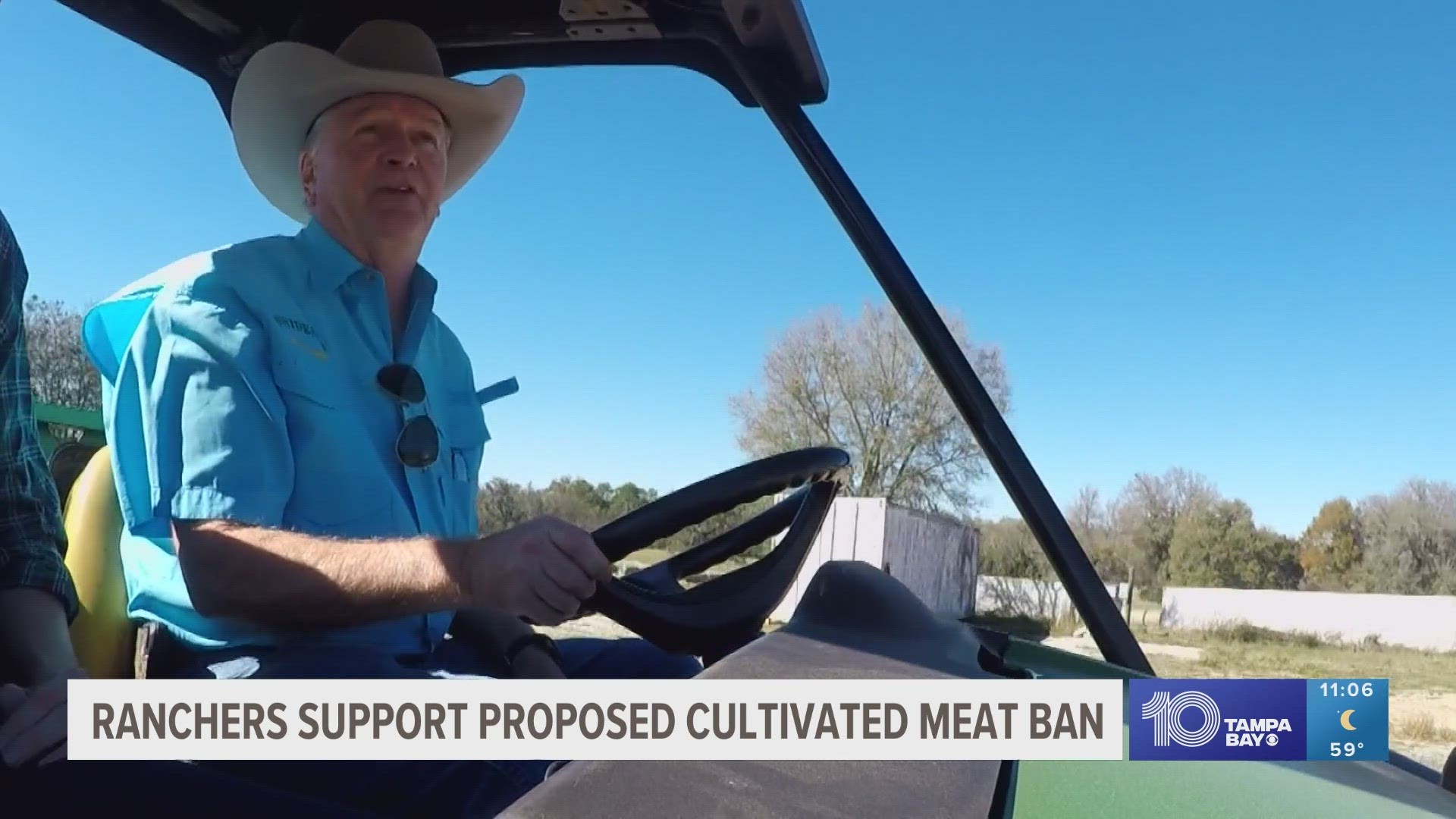PASCO COUNTY, Fla. — Meat grown in a lab and shaped to look like chicken or burgers could be coming to your grocery store unless Florida lawmakers ban it.
They are debating bills that would bar the sale of cultivated meat. Ranchers in south central Florida feel it would threaten a major part of Florida’s agriculture.
North of Dade City in Pasco County, Joe Planz tends to his herd of beef cattle on a 200-acre ranch.
"What's not to love about what I do?" he said. "I get to be out here in God's wonderful world with God's creatures."
Planz is part of the billion-dollar beef industry in Florida — a long history that goes back hundreds of years. The role of ranchers is a hot topic this year in Tallahassee as lawmakers usher the two bills along, one in the House and one in the Senate, that would protect the industry by banning the sale of cultivated, lab-grown meat.
It’s a new product Planz thinks needs more study.
"If that's a path the country is going, I think it's a dangerous path,” he said. “Because I don't think there's been enough research done on things like that."
But not everyone is in support of the bills. Some, including the manufacturers of cultivated meat, say they want consumers to decide what the market should be.
"Whether you want to eat cultivated meat or don't want to eat cultivated meat, you should be against the idea this legislature is banning a certain kind of meat and preventing you from making that choice,” said Thomas Rossmeissl of Eat Just Inc.
Last year, Eat Just Inc. won the first federal approval to sell cultivated meat to the public. The meat is grown with animal stem cells and liquid nutrition from corn and tomatoes.
"We spent three plus years with the USDA and FDA to ensure the product is healthy and safe for consumers,” he said.
While other states like Texas have passed laws to require extra labels on cultivated meat products, no state has banned them outright. Florida could be the first.
Similar legislation in other states has been struck down as unconstitutional, and there's no guarantee the Florida bills will pass. Both have yet to reach the House or Senate floor.

